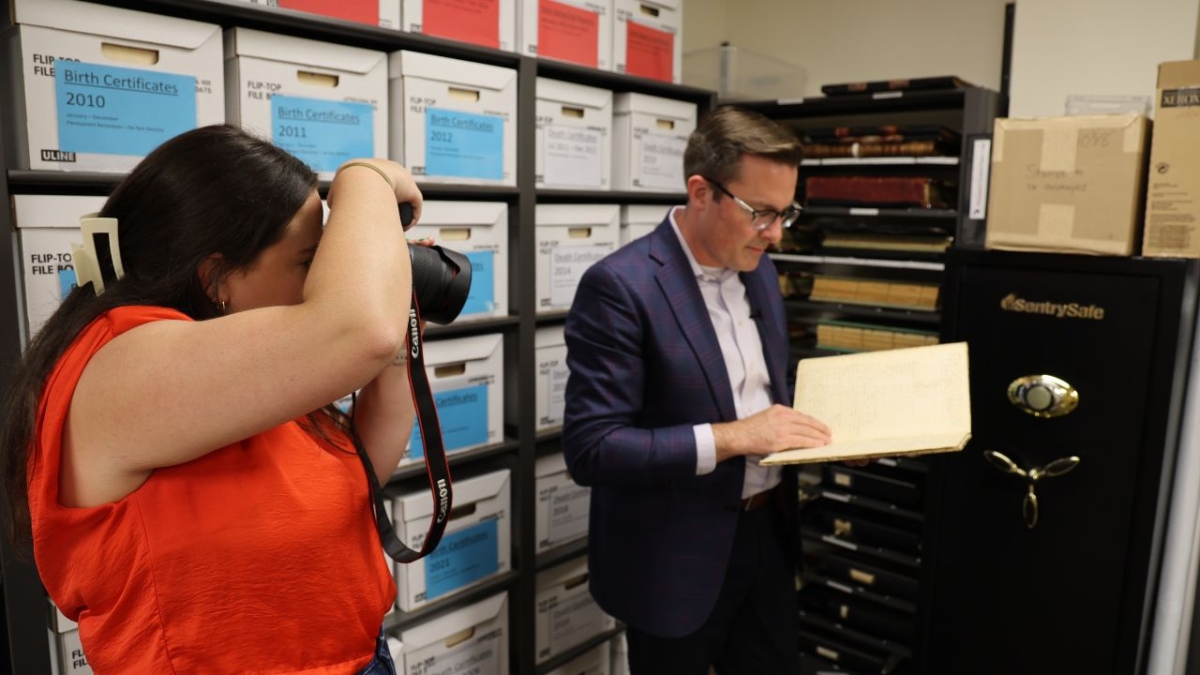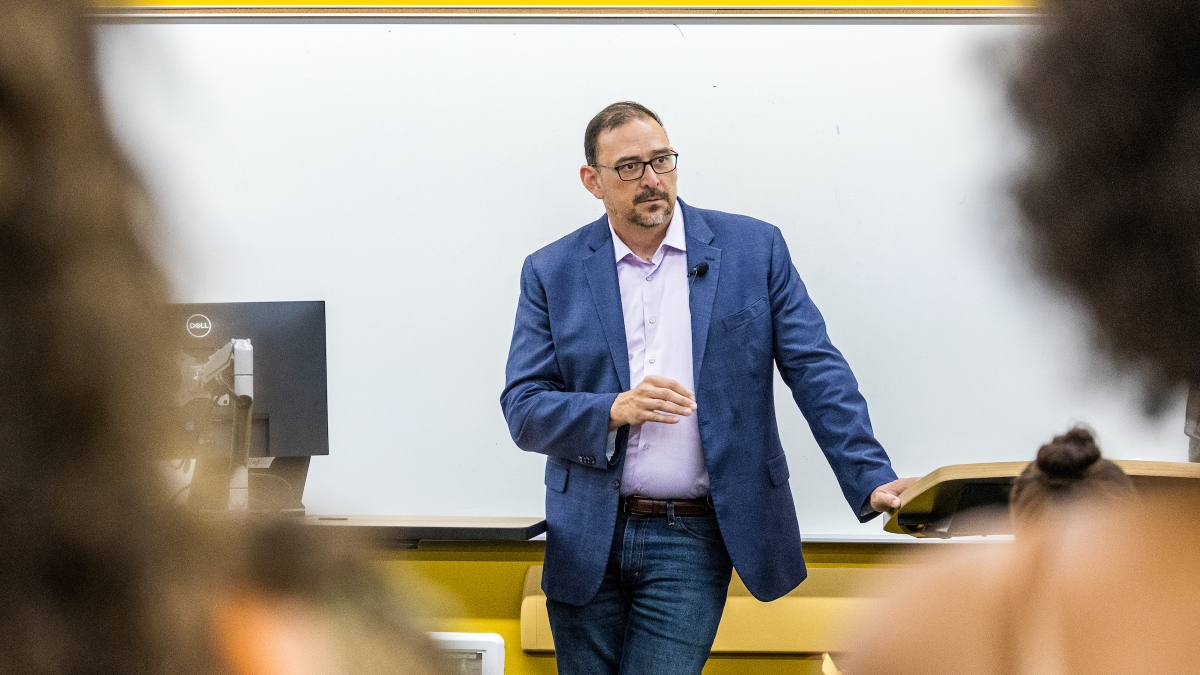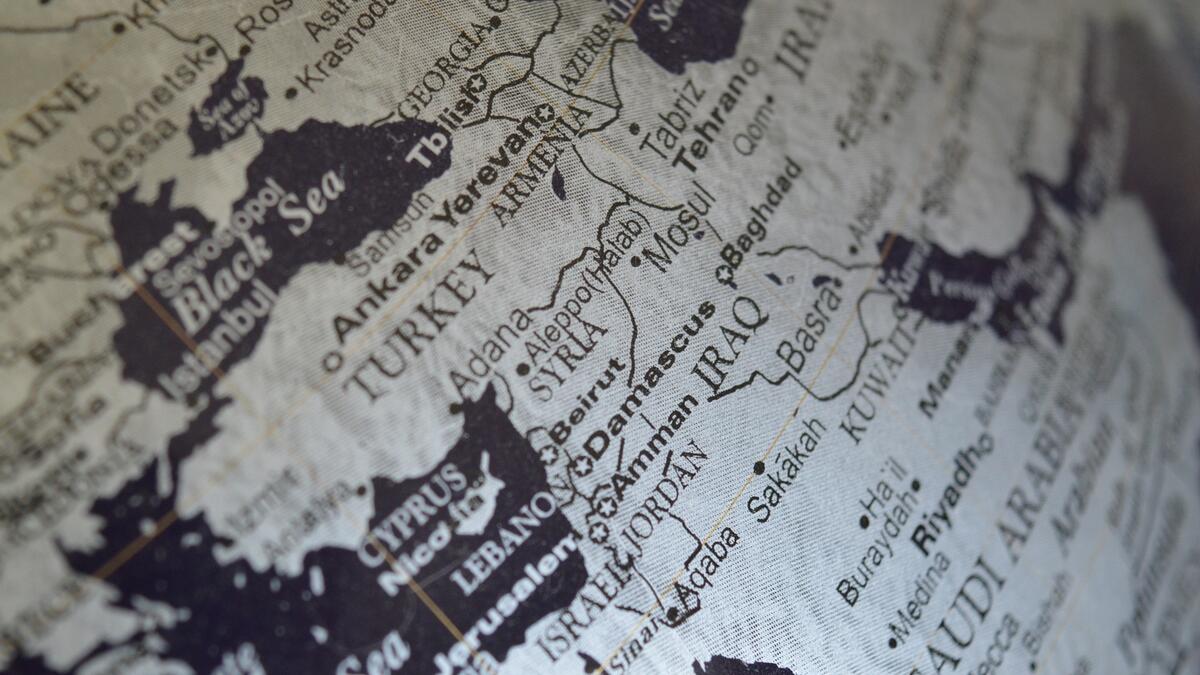Since the 1980s, Iraq has largely been synonymous with violent conflict and civil unrest. But Arabic language Instructor Umar Sulayman says there is much more than that to his home country and the region it sprang from, often referred to as the “cradle of civilization,” where humankind established the world’s first writing system, created the concept of city-states and did no less than invent the wheel.
For three years, Sulayman’s Iraqi Culture and Society course has been shedding light on the rich history and culture of the country and surrounding area for students at Arizona State University, where it is offered through the School of International Letters and Cultures. What started out as an elective course was recently approved to fulfill both global awareness and humanities general studies designations, beginning in spring 2021.
“It has been the goal of many superpowers throughout the history of the world to occupy Iraq,” Sulayman said. “So it’s an important location on the map, and because of its long history and diverse culture, it’s a big influence on the whole region. But sometimes it can be painted with a single brush.”
Instructing such a course was never something Sulayman imagined for himself.
He came to the U.S. in 2006 as a Fulbright Scholar in pursuit of his second master’s degree, which he obtained in teaching English as a second language from Indiana University of Pennsylvania shortly thereafter. From there, he went on to direct the English for Specific Purposes program at Ohio Northern University, where he also established the Arabic program. In 2015, he moved to Tempe, Arizona, and became a global educator for ASU Global Launch, eventually joining the faculty at the School of International Letters and Cultures as an instructor of Arabic, English and linguistics.
While Sulayman’s passion for language is evidenced by his academic career, imparting the rules of grammar and elocution is an entirely different beast than illuminating the sociocultural underpinnings of a civilization. But it soon became clear to him that many of the students in his Arabic courses knew little to nothing about the culture and society of the Middle East where the language came from, and even less about Iraq. So he set out to change that.
“My goal for this course is the same as the mission of ASU: to make students think critically, outside the box. To make them question things,” he said. “My students are often fascinated by how complicated the Iraqi society is, with all the different minority groups and varying beliefs and political associations.”
Sulayman himself is a great primary source for his students. Though he and his immediate family immigrated to the U.S. permanently in 2010, there was a time when family members still living in Iraq were under ISIS rule. And none of that is off-limits in the classroom: “On the first day of class, I say, ‘Please ask whatever you want. I’m never going to get offended because we are all here to learn together.’”
That unmitigated willingness to be candid and receptive has made Sulayman a star with his students; a number of them reported taking several of his classes, but almost all said Iraqi Culture and Society was their favorite.
“I just really like his teaching style,” said Gloria Geeso, a senior in community advocacy and social policy at the School of Social Work, who hopes to have a career in the field.
Geeso grew up in Mesa, Arizona, but was born in New Zealand, where her parents met after they both fled Iraq in the '90s.
“My family is from Iraq, so a lot of the topics apply to me, and the course content helped me learn more about the history of my parents’ country, as well as the current politics and things of that nature,” she said.
Many other students who take the course are either of Iraqi descent or Iraqi immigrants themselves. But Sulayman stresses that it can be beneficial for anyone.
Alexandra Martin, a senior in ASU’s 4+1 Accelerated MA Program in political science, enrolled in the course out of curiosity after taking an Arabic class with Sulayman. She was recently offered a position in intelligence with the U.S. government, and said the course helped prepare her for it.
“It was extremely enlightening,” Martin said. “As a poly-sci student, I learned about the Iraq War, but we never really went in-depth as far as the history of the country or people’s real-life experiences.”
The many guest speakers Sulayman invites to share their personal experiences help to fill that void.
“It really opened my eyes to things I would never have considered being someone who didn’t grow up in a conflict environment,” Martin added.
In addition to new perspectives, students have also walked away from the course with internships, scholarships and volunteer experience.
Rami Khoshaba, a recent biological sciences graduate, was able to volunteer with the same refugee resettlement program that helped his family when they sought asylum in Phoenix in 2008.
“My family is Assyrian. We were Christians living in Iraq, and after the war happened, we became a target of terrorist groups,” Khoshaba said. “Because of that experience and the things I learned in the class, I’m more educated about what these people are going through. It helps me relate to them better.”
And that’s all Sulayman had hoped for.
“People are people,” he said. “They have emotions, feelings, cultures. Certain things they want to keep as part of their heritage. That’s what motivated me to ask my students to look at Iraq differently. And hopefully they will leave the class better equipped to do that.”
Top photo courtesy of Pixabay.com.
More Law, journalism and politics

New report documents Latinos’ critical roles in AI
According to a new report that traces the important role Latinos are playing in the growth of artificial intelligence technology across the country, Latinos are early adopters of AI.The 2024 Latino…

ASU's Carnegie-Knight News21 project examines the state of American democracy
In the latest project of Carnegie-Knight News21, a national reporting initiative and fellowship headquartered at Arizona State University’s Walter Cronkite School of Journalism and Mass Communication…

Arizona secretary of state encourages students to vote
Arizona Secretary of State Adrian Fontes looked right and left, taking in the more than 100 students who gathered to hear him speak in room 103 of Wilson Hall.He then told the students in the Intro…
